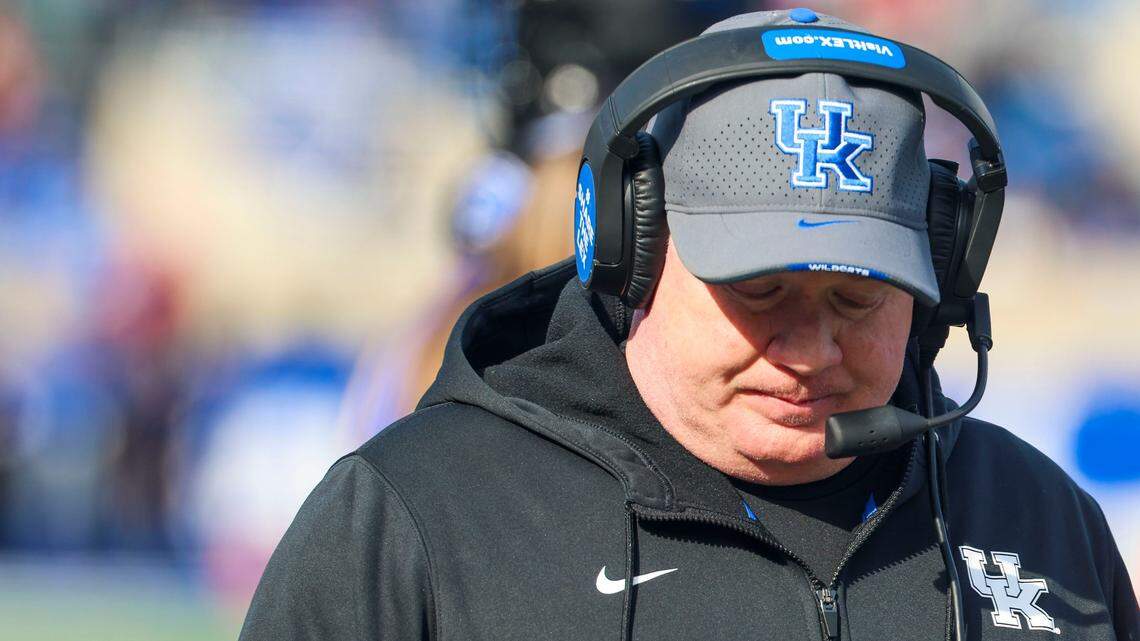Bluegrass Bombshell: Mark Stoops Out at Kentucky After Over a Decade”
In what now goes down as an earthquake in the Bluegrass State, Kentucky football announced the parting of ways with Mark Stoops after more than a decade at the helm. A program founder, a stabilizer, and at times a lightning rod, his departure marks the end of an era—and the start of fierce speculation about the program’s next chapter.
Stoops arrived in Lexington in late 2012, inheriting a Wildcats team mired in losing seasons and low expectations. Over time, he rebuilt. Kentucky made bowl games, notched signature upsets, and reached two 10‑win seasons under his stewardship. He passed legendary names in Kentucky history to become the school’s winningest football coach. But just as legacies are built slowly, they can erode swiftly.
The decision to move on came after a dismal 2024 campaign. The Wildcats limped through the season with a 4–8 record—their worst under Stoops. The losses exposed frailties: inconsistent offense, misfires in big games, and a team that sometimes seemed to have lost its identity. Across those 13 seasons, critics had long pointed out the recurring failure to maintain an elite offense, despite cycling through several coordinators. Many believed that the problem was deeper than scheme—it was philosophical. ([A Sea Of Blue][1])
Financial constraints played a role, too. Stoops’ contract included a buyout clause in the neighborhood of **$37.5 million**, payable within 60 days if Kentucky wished to terminate him. That figure made any dismissal a steep gamble for university administrators. ([A Sea Of Blue][2]) That kind of price tag often insulated underperforming coaches—but it also became an albatross when expectations outpaced results.
Beyond the numbers, internal shifts signaled changing tides. Longtime recruiting coordinator and close Stoops confidant, Vince Marrow, defected to rival Louisville in 2025, taking bridges and recruiting networks with him. ([A Sea Of Blue][3]) For many in Lexington, the move symbolized that even within Stoops’ own walls, cracks were forming.
The departure prompts hard questions: Did Stoops get too comfortable? Did Kentucky outgrow its ceiling under him? Or was the timing simply inevitable—revenge of the schedule, the arms race of recruiting, and the relentless churn of SEC demands?
As Kentucky now enters the post‑Stoops era, the task is immense. Identity, momentum, recruiting leverage—all must be rebuilt. The new coach must earn buy-in quickly, adapt to NIL realities, and not just tread water in the SEC but compete. Some will expect a bold hire; others will counsel patience and stability.
For fans, the emotional dislocation won’t be easy. Stoops won’t be remembered just for wins or losses, but for the turning point he represented—when Kentucky believed it could aspire in college football. That idea now passes to his successor.
